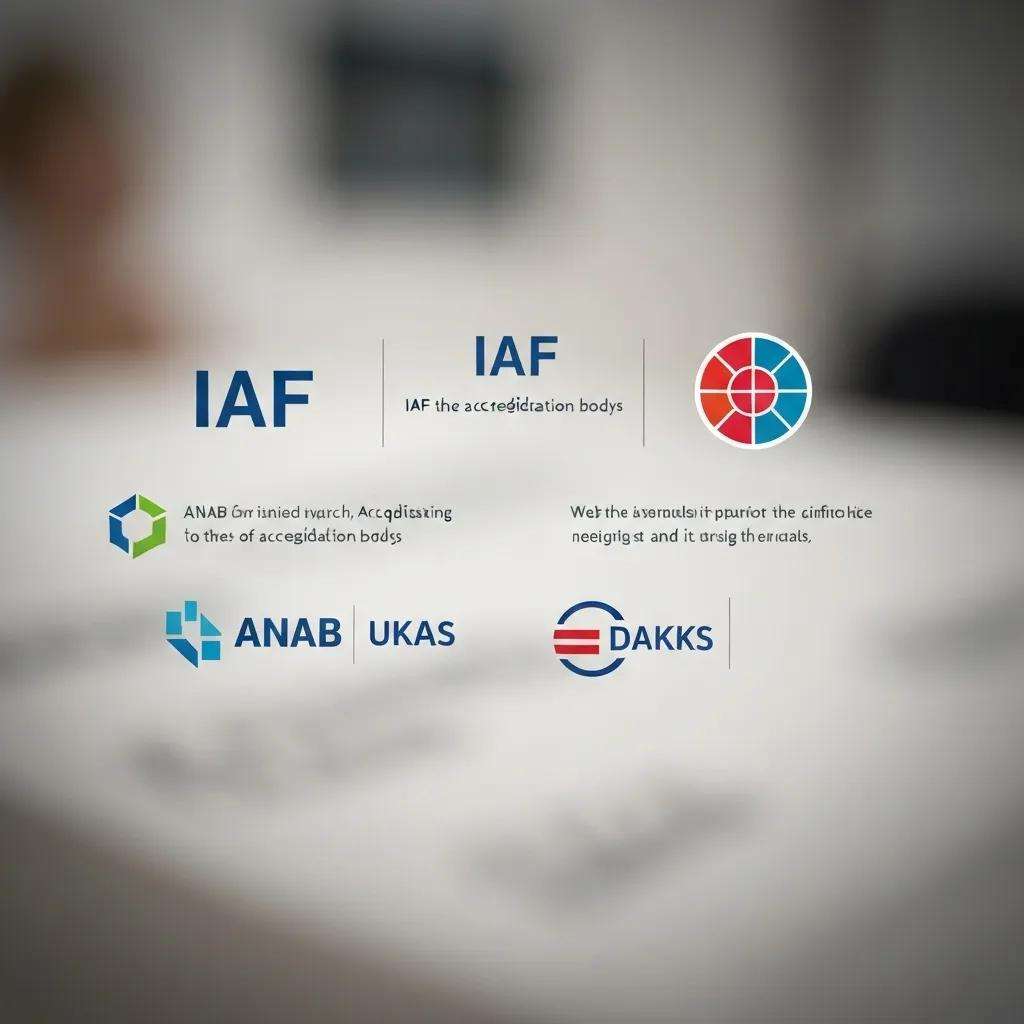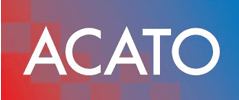How Accreditation Strengthens the Value of ISO Certification

How Accreditation Boosts ISO Certification Trust and Value
Accreditation transforms ISO certification from a compliance milestone into a mark of proven competence, impartiality and international trust. By formally recognizing the technical capability of certification bodies, accreditation elevates the intrinsic value of ISO certificates, unlocking customer confidence, regulatory acceptance and market opportunities. This article defines the key distinctions between certification and accreditation, explores how accreditation builds credibility and operational benefits, outlines practical selection and maintenance steps, and examines its impact on standards such as ISO 9001 and ISO 14001.
What Is the Difference Between ISO Certification and Accreditation?
ISO certification confirms that an organization’s management system meets a specified ISO standard, while accreditation verifies that the certification body itself operates under internationally recognized quality and impartiality requirements. Understanding this distinction lays the foundation for appreciating why only accredited certificates carry the highest level of trust and market acceptance.
What Is ISO Certification and Its Key Standards?
ISO certification is the formal process by which an accredited or non-accredited body assesses an organization’s conformity to an ISO standard, driving consistent quality, environmental performance or security. Key standards include:
- ISO 9001: Quality Management Systems
- ISO 14001: Environmental Management Systems
- ISO 27001: Information Security Management
- ISO 45001: Occupational Health & Safety
- ISO 15189: Medical Laboratory Competence
These standards provide frameworks for continual improvement and stakeholder satisfaction, leading directly into why accreditation matters for impartial oversight.
What Is ISO Accreditation and Who Provides It?

ISO accreditation is the formal recognition granted to certification bodies that demonstrates their competence, integrity and impartiality under ISO/IEC 17021-1 and related guidelines. Leading accreditation bodies include:
- International Accreditation Forum (IAF)
- ANSI National Accreditation Board (ANAB)
- United Kingdom Accreditation Service (UKAS)
- Deutsches Akkreditierungssystem (DAkkS)
By ensuring auditors meet stringent technical criteria, accreditation guarantees that certification decisions remain consistent and reliable, setting the stage for comparing roles.
The Role of Accreditation Bodies
Accreditation bodies, such as the ANSI National Accreditation Board (ANAB) and the United Kingdom Accreditation Service (UKAS), play a crucial role in ensuring the competence and impartiality of certification bodies. They evaluate these bodies against international standards like ISO/IEC 17011, guaranteeing consistent and reliable certification decisions.
ISO/IEC 17011: Conformity assessment — Requirements for accreditation bodies accrediting conformity assessment bodies (2017)
This standard is the foundation for the accreditation process, ensuring that accreditation bodies operate with the highest standards of quality and integrity.
How Do Certification Bodies and Accreditation Bodies Differ?
The roles of certification bodies and accreditation bodies can be contrasted as follows:
| Organization Type | Primary Role | Governing Standard |
|---|---|---|
| Certification Body | Audits organizations and issues ISO certificates | ISO/IEC 17021-1 |
| Accreditation Body | Evaluates and accredits certification bodies | ISO/IEC 17011 |
This division ensures that the certificate issuer is objectively monitored by an independent authority, leading to the notion of “certification of the certifier.”
Why Is Accreditation Called the “Certification of the Certifier”?
Accreditation earns this title because it subjects certification bodies to rigorous assessment of their own processes, auditor competence and impartiality. By certifying those who certify others, accreditation enforces a higher level of trust and consistency across all certificates issued, reinforcing stakeholder confidence.
How Does Accreditation Enhance the Credibility and Trust of ISO Certification?
Accreditation enhances credibility by assuring customers and regulators that ISO certificates are issued by bodies evaluated against global best practices for competence and impartiality. This recognition establishes certificates as dependable evidence of compliance and performance.
Why Are Accredited Certificates More Trusted by Customers and Regulators?
Accredited certificates are backed by:
- International Recognition – Accepted across borders under multilateral recognition arrangements (MRAs)
- Impartial Oversight – Independence from commercial or political influence
- Technical Competence – Auditors trained and evaluated against objective criteria
These attributes drive immediate trust and facilitate regulatory approvals, paving the way for guaranteed impartiality.
How Does Accreditation Ensure Competence and Impartiality of Certification Bodies?
Accreditation enforces:
- Auditor Qualification – Verified skills in auditing and standard application
- Process Controls – Documented procedures for audit planning and decision-making
- Conflict-of-Interest Policies – Clear separation of certification and consultancy
These measures protect against bias and errors, creating a foundation for legal and commercial advantages.
What Are the Legal and Commercial Advantages of Accredited Certification?
Organizations with accredited ISO certificates benefit from:
- Tender Eligibility – Preferred in government and large private contracts
- Regulatory Compliance – Recognized by authorities as valid proof of conformity
- Brand Differentiation – Clear demonstration of third-party validation
Benefits of Accredited Certification
Organizations with accredited ISO certificates gain several advantages, including eligibility for government and private contracts, regulatory compliance, and enhanced brand differentiation. These benefits translate into faster market entry and a stronger competitive position, as accredited certificates are recognized as dependable evidence of compliance and performance.
ISO/IEC 17021-1: Conformity assessment — Requirements for bodies providing audit and certification of management systems (2015)
This standard outlines the requirements for bodies providing audit and certification of management systems, which is essential for understanding the value of accredited certification.
What Are the Market and Operational Benefits of Accredited ISO Certification?

Accredited ISO certification drives business value by opening new markets, streamlining operations and reinforcing reputation across stakeholders.
How Does Accreditation Unlock Global Market Access and Competitive Advantage?
Accreditation underpins multilateral recognition arrangements, enabling ISO certificates to be accepted without additional audits in key export markets. This seamless acceptance accelerates international trade and tender qualifications for certified organizations.
How Does Accreditation Improve Operational Efficiency and Risk Management?
By validating that certification bodies apply robust audit methodologies, accreditation ensures that identified nonconformities and improvement opportunities reliably target operational risks. This consistency accelerates corrective actions and fosters continual improvement.
How Does Accredited Certification Enhance Stakeholder Confidence and Brand Reputation?
Accredited certificates signal impartial validation to customers, investors and supply-chain partners, supporting stronger relationships, higher customer retention and a reputation for excellence.
How Can Organizations Choose and Maintain Accredited ISO Certification?
Selecting and retaining accreditation-backed certification requires clear criteria, disciplined audits and a commitment to continuous improvement.
What Criteria Should You Use to Select an Accredited Certification Body?
Organizations should evaluate certification bodies based on:
- Accreditation status with a recognized body
- Scope of accreditation matching desired ISO standards
- Auditor expertise in relevant industries
- References and demonstrated track record
For example, exploring ISO 9001 certification bodies ensures alignment with quality management requirements.
These criteria guide the decision process and lead to understanding audit roles.
What Is the Role of Audits in Accredited Certification?
Audits in an accredited scheme include:
- Initial Assessment – Comprehensive system evaluation before certification
- Surveillance Audits – Periodic checks to confirm ongoing compliance
- Recertification Audits – In-depth review at the end of each cycle
Each audit stage enforces the rigor that accreditation demands, transitioning into sustained value strategies.
How Do Organizations Sustain Value Through Continuous Improvement and Re-Certification?
Sustained certification value depends on:
- Management Reviews – Regular assessment of system performance
- Internal Audits – Proactive identification of gaps and corrective actions
- Action Tracking – Documented follow-up on nonconformities and enhancements
This cycle of assessment and improvement preserves accreditation benefits and future-proofs certification.
How Does Accreditation Specifically Impact Key ISO Standards Like ISO 9001 and ISO 14001?
Accreditation adds a layer of verification that amplifies the effectiveness and acceptance of specific ISO standards.
How Does Accreditation Elevate the Value of ISO 9001 Quality Management Certification?
For ISO 9001, accreditation ensures:
- Consistent application of quality principles
- Reliable audit findings that drive product and process improvements
- Enhanced customer satisfaction through verified management practices
These factors make quality certification a demonstrable competitive asset.
How Does Accreditation Enhance ISO 14001 Environmental Management Certification?
In ISO 14001, accreditation:
- Confirms auditors’ environmental expertise
- Validates that environmental objectives and compliance obligations are properly monitored
- Strengthens stakeholder trust in sustainability claims
This integrity is critical for environmental leadership and risk mitigation.
What Is the Role of Accreditation in Other Important ISO Standards?
Across standards such as ISO 27001 (information security), ISO 45001 (occupational health & safety) and ISO 15189 (medical laboratories), accreditation guarantees:
- Auditor proficiency in specialized domains
- Consistent interpretation of complex requirements
- Recognition by regulators and industry bodies
These assurances extend the value of all accredited ISO certifications.
Accreditation is the cornerstone that transforms ISO certification into a universally trusted credential. By choosing and maintaining an accredited certification body, organizations secure a competitive advantage, operational excellence and stakeholder confidence. Pursuing accreditation-backed ISO certification today ensures long-term credibility and resilience in an increasingly demanding global marketplace.

